Another week, another one-off story… except for the last few minutes. But before we get to the good part, let’s talk about the rest of the episode. I was actually hoping for the show to revisit Erica, since we kinda just ditched her back in episode two. But no, Violet’s off to another job, because she continues to get more and more popular than ever. I’m also a little ticked off that they teased a conflict between her and Gilbert’s brother only to completely drop that subplot for the time being. I’m not saying that I no longer enjoying the show; I’m also not saying that my enjoyment is plummeting fast. But while other shows are slowly reaching their peak, it feels as thoughViolet Evergarden has yet to live up to its first two episodes. Is this KyoAni’s fault or should we blame the source material? And before anyone brings up the fact that Cowboy Bebop was also largely episodic, that show was good in spite of it.
This time, Violet’s off to the Nation of Genetrix, but this looks more like a village. She’ll be helping out Oscar Webster, a playwright who has been struggling as of late due to his fondness for the drink. When she gets there, she finds a house in complete disarray and a sad, pathetic man who can barely keep himself conscious. As a result, he is treated to a bit of housekeeping along with Violet’s ghostwriting expertise. Talk about women taking on the burden of the emotional labor to the utmost extreme. She demands that he not drink until at least the job is done, so I think she should’ve made him to clean up his pigsty of a home. It’s not too much to ask any adult, male or female, to keep their living quarters respectable. The fact that she had to tidy up the place for the guy is a bit much. He then has the gall to make her buy paper as well as carbonara for dinner. Violet replies, “Sir, I’m your ghostwriter, not your maid.” Shoulda said that before the clean-up. Then she goes and does what he wants anyways. Weak.
Oscar finally wakes up and goes looking for the booze that Violet has hidden away, but y’know, he might be one of those artists who can only create when they’re under the influence. Nevertheless, she insists that alcohol is bad for his health. True, but again, Violet’s emotional labor is off the charts in this week’s episode. Clearly, she’s taking on a surrogate role; she’s replacing Olivia, the writer’s late daughter. So once again, our heroine is pretty much a traveling therapist. Isn’t that remarkable? Something that takes years of training can be done by a possibly autistic 14-year-old war veteran. And while I’m being somewhat snarky in tone, I don’t mind at all our heroine helping out those like Luculia or even Iris. But this deadbeat who instantly requests that Violet cook for him? Nah, man. How exactly did he feed himself before she came alone?
Oscar’s writing a play about a girl who goes on a journey, but he can’t figure out how to get her home. It’s like a metaphor, dude; a metaphor of his long, lost daughter. After being triggered by Violet holding his late daughter’s parasol, he finally confesses, “I lost my only hope in life.” Hearing this, I’m actually reminded of one of the saddest things I’ve ever seen in writing. And while I want to empathize for Oscar the same way I empathize with Roosevelt, I know that Violet’s going to somehow cure what ails him within the next eight or nine minutes. His recovery won’t feel as though he’s earned it. If KyoAni had stretched some of the stronger vignettes out into multi-episode arcs and excised the weaker ones, we might have the best anime series they’ve ever put together. But now, I’m not so sure…
And of course, through other people’s pain, Violet is supposed to then understand her own struggles in life. But the order of causality makes this a bit odd. Okay, so she’s been missing Gilbert since the start of the anime, and we can assume that this has affected her psyche is some shape or form. But what does it mean for her to understand it now? What does it mean for her to finally have the ability to empathize with her clients when the pain she’s finally feeling is something she’s always had? Like, did it not hurt before, but by hearing Oscar’s sad tale, it finally hurts now? Or did it always hurt, but she just couldn’t bring those raw, unprocessed emotions to the surface? It’s hard for me to understand what the show is trying to get at.
But after seeing Violet cry near the lake, Oscar later tells her that night that he’ll make sure to give his new play a happy ending. See? Violet will fix what ails you in no time flat. For the ending, Oscar wants his heroine to return home by using a parasol. The wind will carry her back to the father. To help him visualize this, Violet literally tries to leap across the lake. For a show that has been grounded in reality for the most part, it’s really strange to suddenly see a 14-year-old girl practically fly. And yet, we have to keep in mind that she’s not actually an android. Violet doesn’t quite make it all the way across the lake, but the end result still takes me out of the moment. We even get a moment that feels like it has been plucked straight out of an after school special. But wait! The most groanworthy is coming right up: “I was sure there was no God, but if there is one, it must be you.” Really? Really? But just like that, the famous playwright finishes his first play in years, no longer stays cooped up in his home, and even quits drinking! Marvelous!
As Violet heads home, she struggles with her feelings of guilt. She wonders how many lives she’s robbed, how many promises will remain unfulfilled thanks to her and her alone. Every new job fans the flames of her humanity, and yet, humanity is sinful. And so the doll, who at first did not even know how to feel, now travels the land and heals people of their emotional trauma by practically absorbing them into her own soul. Almost like The Picture of Dorian Gray, as the continent mends its wounds and grows happier by the day, our heroine’s emotional burden grows heavier and heavier. It’s like she’s bearing our sins. All of a sudden, those Jesus comparisons don’t seem so outlandish, but does the story really want to go there? Again, we’re teetering on the edge of “jumping the shark” territory.
All-too-human Violet suddenly bumps into her benefactress from the first episode, and this time, the former apologizes for her past behavior. Even though the woman holds the girl no ill will, she inadvertently punishes Violet anyway: “I’m so glad to see you’ve grown up. Now the late Gilbert’s soul can rest in peace.” Whoops. Big whoops. Terrible whoops. Our heroine soon storms into Claudia’s office and demands to know the truth.
The longer you put something off, the more it’ll blow up in your face. Or rather, Gilbert’s dead ’cause he got blown up. For now, however, Violet remains in denial. On the bright side, the next few weeks should hopefully focus on Violet’s pain and thus feel less episodic.
In any case, I like the final couple of minutes. I can’t say I feel the same about the majority of the episode.
Misc. notes & observations:
— On the other hand, Mushishi is also episodic, and that’s okay because Ginko doesn’t really have a character arc. No one really does. He doesn’t develop at all. On the other hand, Violet clearly does, but a significant portion of it is happening offscreen, which leaves viewers just scratching their heads. “Wait, when did that… happen…?”
— “You will burn in the flames of your sin.” Sounds like some kind of STD, which they probably didn’t have good medicine for back then, alternate universe or not.
— Every time there’s a play in an anime, the acting is either low effort or hamfisted.
— Wait, Violet’s going to ghostwrite for a playwright? But… aren’t playwrights supposed to be able… write?
— Cattleya asks Claudia if he’s finally told Violet the truth about Gilbert. Of course he hasn’t. The show’s just reminding you that he hasn’t since we’ve crossed the midway point in the season. Maybe an adaptation of Violet Evergarden would’ve been better as a movie.
— Oscar Webster: “There stood a girl. Not the one I wished I could see again, the one whose very name is too painful for me to utter, but a girl with hair the same shade of gold.” Boy, these playwrights sure are dramatic. Hahaha… ha.
— Whenever people meet Violet, they always says that they’re surprised to see someone so young, but does she really look young to you? I mean, I always thought they meant she was 17 or 16 at the very least. Violet does not look 14.
— Apparently, he needs a ghostwriter because he’s too much of an alcoholic to even hold a bottle steady. I dunno, man… he could always just write the play out unless he can’t do that either.
— Obviously, Violet’s cooking for the first time, so the results are going to be comical, but carbonara’s actually pretty simple to make. I’d make it right now if it weren’t so fattening.
— Violet is impressed by the play: “…I’m finding joy, feeling sorrow.” But she continues to be completely deadpan in her delivery. Her facial expression rarely changes. And considering how much of Violet’s development has happened offscreen, it’s hard to currently take her word for it.
— Would’ve been nice if she didn’t have to run like that, though.
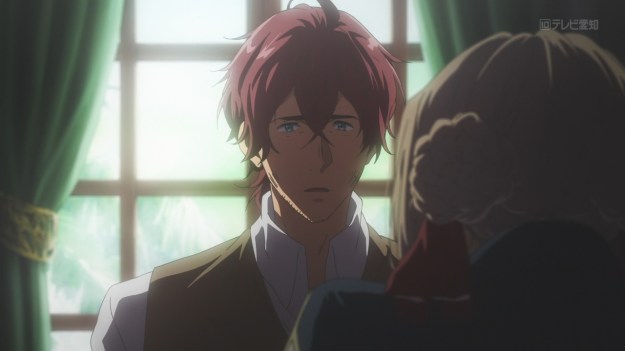
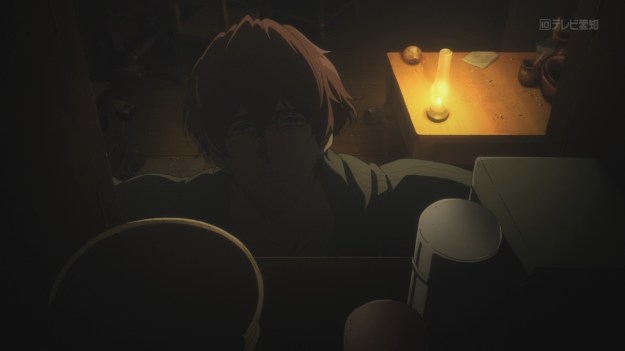
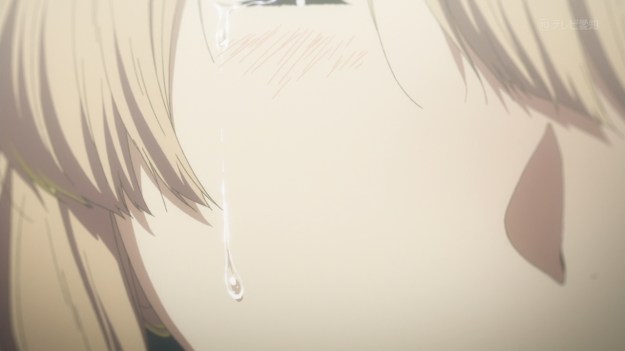
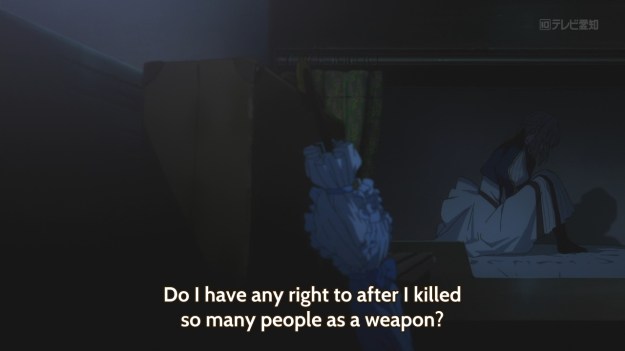
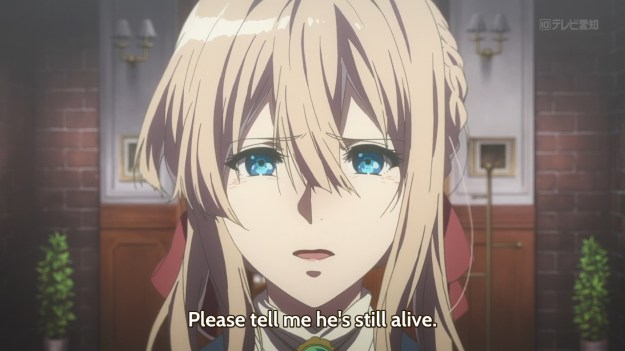
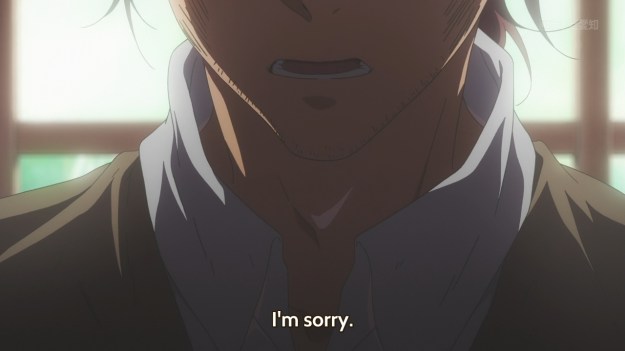
In case someone makes an RL movie, I humbly have a suggestion for the main role…
https://postimg.org/image/jlaf8dpfp/